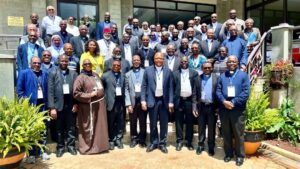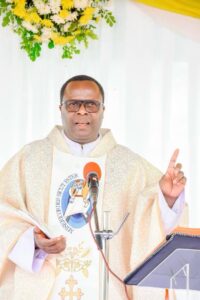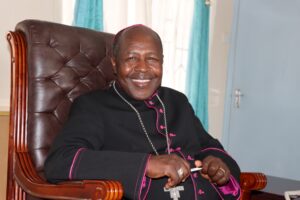VATICAN: Vatican Effects Changes in Synod to Allow Lay Faithful Including Women to Vote at General Assembly

Sr. Jecinter Antoinette Okoth, FSSA
The Vatican-based leadership of the XVI General Assembly of the Synod of Bishops has announced changes on the eligibility of voting, highlighting for the first time that the lay people including women and young people will have the right to vote unlike other past years.
The leadership stressed that even though there are modifications and new features to the composition of the assembly and the kinds of participants, the amendments “will not, however, change the episcopal nature of the Assembly.”
In the modifications, “Five women Religious and five men Religious belonging to Institutes of Consecrated Life, elected by the respective organizations representing the Superiors General” will attend the general assembly of the Synod on Synodality slated to take place in two sessions, in October 2023 and October 2024, and will have the right to vote. These will replace the ten clerics belonging to Institutes of Consecrated Life who used to represent the Superiors General.
The notification by Holy See published Wednesday, April 26, reveals that there will no longer be auditors in the assembly. Instead, an additional of 70 people whom the Vatican officials call “non-bishop members” representing various groupings of the faithful of the People of God including the priests, consecrated women, deacons and lay faithful from the local Churches will be in the assembly.
According to the Vatican message, the non-bishop members “will be chosen by the Pope from among a list of 140 people selected (and not elected) by the five International Reunions of Bishops’ Conferences” including the Symposium of Episcopal Conferences of Africa and Madagascar (SECAM), Conference of Latin American Bishops (CELAM), Council of European Bishops’ Conferences (CCEE), The Federation of Asian Bishops’ Conferences (FABC), Federation of Catholic Bishops’ Conferences of Oceania (FCBCO), the Assembly of Patriarchs of Eastern Catholic Churches and, jointly, by the United States Conference of Catholic Bishops and the Conference of Catholic Bishops of Canada who will identify 20 representatives each. According to the changes, it is requested that 50% of the representatives to be women and that the presence of young people also be emphasized.
The Vatican officials insists that in selecting the representatives, “account is taken not only of their general culture and prudence, but also of their knowledge, both theoretical and practical, as well as their participation in various capacities in the synod process.”
In addition to the 70 non-bishop members, the synod will also have non-bishop members among the pontifically appointed members.
In the past assemblies for the synod of bishops, laypeople were allowed to participate without the right to vote.
Vatican suggests that the election of Members of the Ordinary General Assembly and their substitutes, should be done as per the Canon “in plenary session and by secret ballot by the respective Synods of Bishops, Councils of Hierarchs of the Oriental Catholic Churches and Episcopal Conferences.”
The message reads in parts, “The five women religious and five men religious belonging to Institutes of Consecrated Life are elected by the respective organizations representing the Superiors General,” that is the International Union of Superiors General (UISG) for Women and the Union of Superiors General (USG) for the men.
Additionally, “The 70 non-bishop members are identified by the International Meetings of Bishops’ Conferences and the Assembly of Patriarchs of the Eastern Catholic Churches, but not elected,” they said.
Other members who will participate but are not members of the assembly and has no voting rights include experts, those “people who are competent in various capacities on the subject under discussion” and who will also for the first time be joined by a number of facilitators including “experts whose task it will be to facilitate the work at the various moments of the Assembly,” the Vatican officials said adding that Fraternal delegates, members of other Churches and Ecclesial Communities will also participate.
Vatican expounds that adding non-bishop members in the Synodal Assembly, “reinforces the solidity of the process as a whole, incorporating in the Assembly the living memory of the preparatory phase, through the presence of some of those who were its protagonists, thus restoring the image of a Church-People of God, founded on the constitutive relationship between common priesthood and ministerial priesthood, and giving visibility to the circular relationship between the prophetic function of the People of God and the discernment function of the Pastors.”


